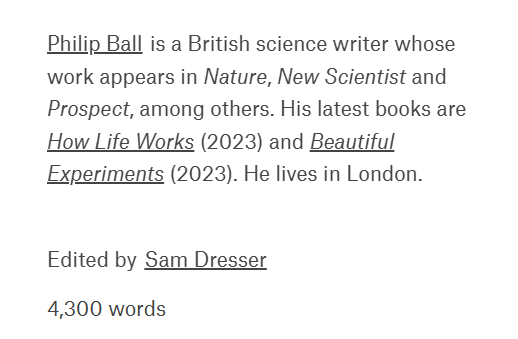Techno-pipe dreams

Thirty years ago, nanotech was about to change everything. Let’s not get tricked again by Silicon Valley’s magical thinking
https://aeon.co/essays/no-suffering-no-death-no-limits-the-nanobots-pipe-dream


In 2000, Bill Joy, the co-founder and chief scientist of the computer company Sun Microsystems, sounded an alarm about technology. In an article in
Wired titled ‘
Why the Future Doesn’t Need Us’, Joy wrote that we should ‘limit development of the technologies that are too dangerous, by limiting our pursuit of certain kinds of knowledge.’ He feared a future in which our inventions casually wipe us from the face of the planet.
The concerns expressed in Joy’s article, which prompted accusations of Luddism from tech advocates, sound remarkably similar to those now being voiced by some leaders in Silicon Valley that artificial intelligence might soon surpass us in intelligence and decide we humans are expendable. However, while ‘sentient robots’ were a part of what had spooked Joy, his main worry was about another technology that he figured might make that prospect imminently possible. He was troubled by nanotechnology: the engineering of matter at the scale of nanometres, comparable to the size of molecules.
In fact, it would be more accurate to say Joy was troubled by the version of nanotechnology that he had read about in the book
Engines of Creation (1986) by the engineer K Eric Drexler, a graduate of the Massachusetts Institute of Technology. At the close of the 20th century, it was nanotechnology, not AI (which didn’t seem to be getting very far), that loomed large as the enabler of utopias and dystopias. Drexler’s book described a vision of nanotech that could work wonders, promising, in Joy’s words, ‘incredibly low-cost solar power, cures for cancer and the common cold’ as well as ‘[low-cost] spaceflight … and restoration of extinct species.’
But Joy had learnt from the inventor Ray Kurzweil (now a scientific adviser to Google) that Drexler’s nanotech promised something yet more remarkable: the singularity, a point at which our accelerating technological prowess reaches escape velocity and literal marvels become possible – in particular, immortality through the merging of human and machine, so that we could upload our minds to computers and live forever in a digital nirvana.
snip


